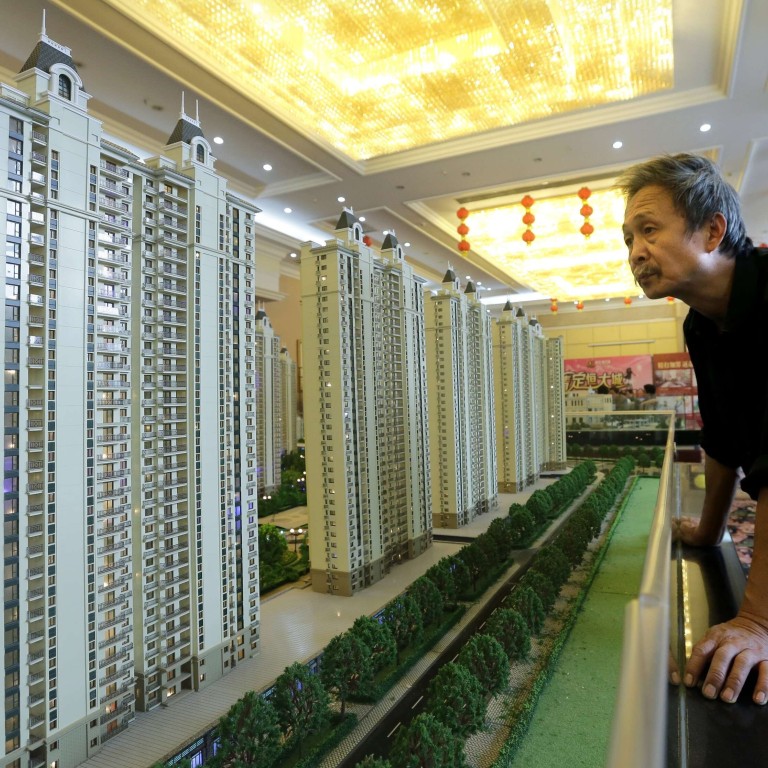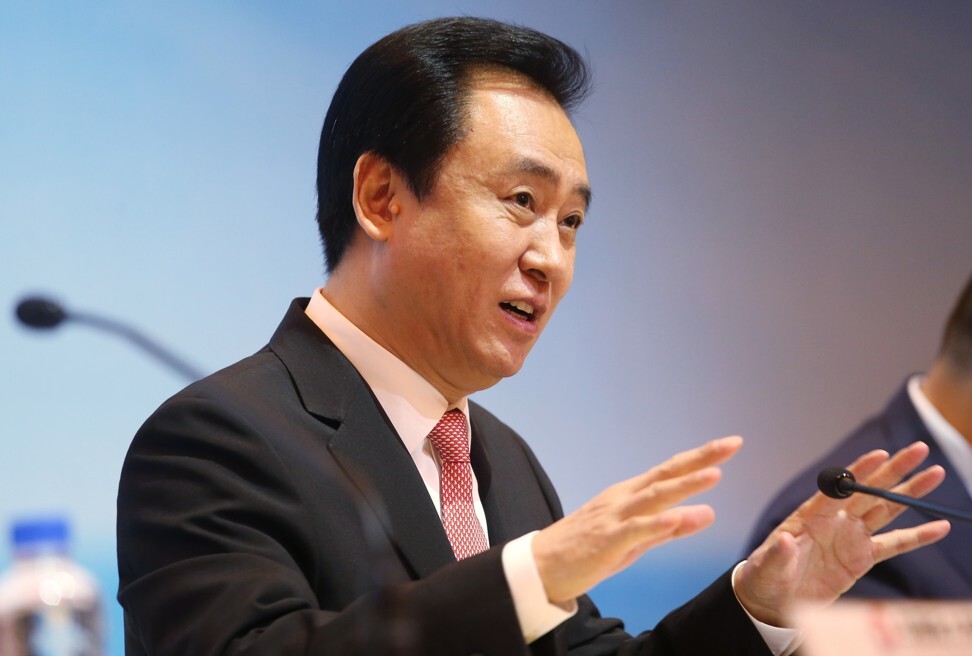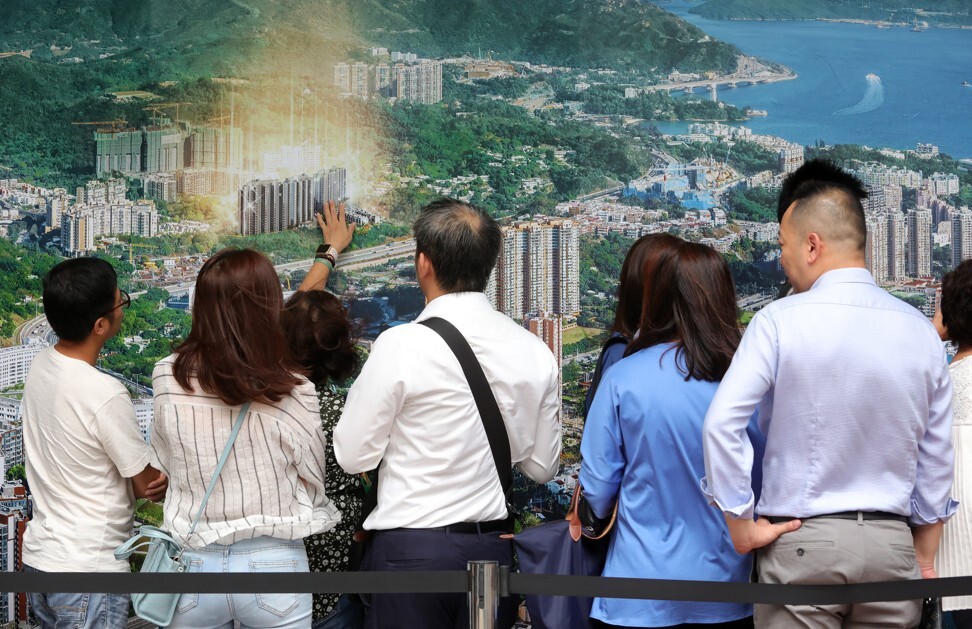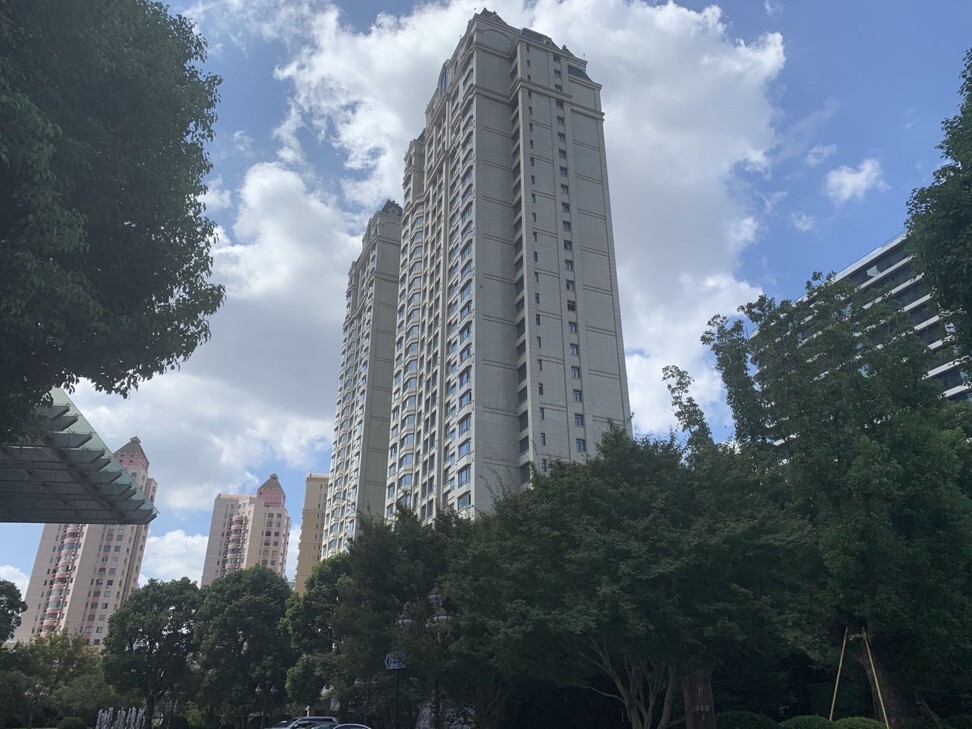
China Evergrande’s 30 per cent discounts get world’s most indebted developer within sight of sales goal, allay cash crunch fears
- The Guangzhou-based developer sold 141.63 billion yuan of real estate in the 38 days through October 8, including China’s weeklong National Day public holidays, typically a peak spending period
- That brought the year’s revenue to 592.25 billion yuan, or 91 per cent of its sales target, Evergrande said
The Guangzhou-based developer sold 141.63 billion yuan (US$21.1 billion) of real estate in the 38 days through October 8, including China’s weeklong National Day public holiday, typically a peak spending period. That brought the year’s contracted sales to 592.25 billion yuan, or 91 per cent of its sales target, Evergrande said in a statement.
“The strong sales in September and October, if coupled with a healthy cash collection rate, will help the company generate the cash required to alleviate its tight liquidity position and address other upcoming debt obligations,” said Luther Chai, analyst with Singapore-based debt-research firm CreditSights.

The success of Evergrande’s sales campaign may be the harbinger of a price war, putting the pressure on competitors to similarly slash prices to attract buyers into committing to big-ticket purchases amid the slowest economic growth pace in decades. The discounts also risk upsetting China’s property owners, who are unaccustomed to falling asset prices, owing to the dearth of investible options in the country for their life savings.
The 30 major Chinese developers monitored by Jefferies increased their sales by 22 per cent on average in September, 2 percentage points more than forecast. Evergrande kicked off its sales campaign on September 7, aiming to generate 200 billion yuan in sales from 600 projects across the country in the two months through October.
For now, homebuyers are rejoicing in Evergrande’s largesse and snapping up bargains. At the Evergrande Yayuan apartment complex in the Guangdong provincial city of Heyuan, a festive mood permeated the show room during an October 2 visit. Families visited with the elderly in tow and infants in prams, to view brochures and video presentations. Cheerful music played in the background, interrupted by staff’s announcement that a buyer had just snapped up three homes.

At the Riverside Mansion project on the eastern bank of Shanghai’s Huangpu River in the Lujiazui financial district, viewing was only available by appointment, and security guards stopped anyone attempting to view the project unescorted.
The smallest apartment in this project measures 339 square metres (3,650 square feet), with a price tag starting from 120,000 yuan per square metre. Only two apartments on the second floor of the 104-unit Art Deco-style project remained unsold: a 504-sq metre flat quoted for 60 million yuan, and a 908-sq metre unit offered at 150 million yuan. Neither unit is available to discounts.
More than 20 builders, private equity firms, venture capitalists and money managers poured 130 billion yuan into Evergrande’s Hengda unit over three funding rounds in 2017 to help it repay its debt and buy land, in exchange for the equity stakes and promises of dividends.

“If you think of Evergrande as a patient, the most dangerous phase [of its ailment] has passed and it won’t be a terminal case, at least for now,” said Lung Siu Fung, analyst with CCB International Securities in Hong Kong. “What impressed investors is that Hui has an amazing group of friends with deep pockets and can nail down investors with access to financing in such a short period.”
China walks tightrope on curbing property debt, local government finances
To be sure, Evergrande is not out of the woods, as it still must reckon with its debt load, analysts said. As of June, 47 per cent of the company’s 835.5 billion yuan of outstanding debt was due within a year.
“The company must choose between keeping up the pace of its land acquisitions or cutting debt,” said Chai. “We are sceptical of the company’s willingness to deleverage given its poor track record of adhering to its plans over the years. Investors should pay close attention to its 2020 financial results to see if it is really able to pull off the 150 billion yuan debt reduction that it promised.”
Evergrande had already breached the Chinese central bank‘s threshold for indebtedness, known as the “three red lines” in the industry.
The framework caps debt-to-asset ratio for developers at 70 per cent after excluding advance receipts, net debt-to-equity at 100 per cent, and short-term borrowings at no more than cash reserves. Failing to meet those “red lines” may result in them being cut off from access to new loans from banks, the state-owned Economic Information Daily reported in late August.
“The three red lines stopped Evergrande from growing its debt,” said Zhou Chuanyi, credit analyst with Lucror Analytics. “They can no longer borrow from Peter to pay Paul, like what they did in the past.”



